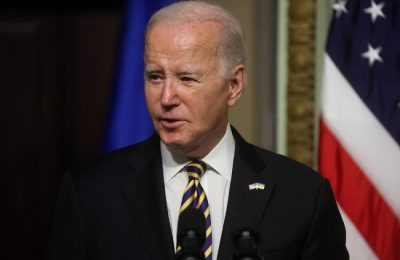This year, Africa’s Global Bank, the United Bank for Africa rolled out series of activities to mark its 75th anniversary .CHIMA NWOKOJI highlights recent events in the bank, exploring its strategic importance for Africa’s economic development and impact on the global banking stage.
Africa’s Global Bank, United Bank for Africa (UBA) Plc, will raise N239.4 billion through a Rights Issue of 6,839,884,274 ordinary shares of 50 kobo each at N35.00 per share.
This exercise coincides with the bank’s 75th anniversary, and by eyes of some analysts, UBA epitomises the continent’s rising financial prowess, providing a model for African enterprises aiming to operate on the world stage.

With its roots stretching back to 1949, UBA has not only survived decades of economic challenges but has thrived to become a formidable player in both African and global financial sectors.
Today, the bank operates across 20 African countries and has established itself in major international financial hubs, including New York, London, Paris, and Dubai, making it the only sub-Saharan African bank with such an extensive global reach.
Founded in Nigeria in 1949, UBA began as a small regional bank with modest ambitions. However, it was clear from the start that this was a bank with big dreams. From its inception, UBA understood the importance of integrating itself deeply within African economies while maintaining a focus on international markets.

Over the next few decades, it steadily expanded within Nigeria and the broader African region, demonstrating remarkable resilience in the face of political, economic, and market instability.
In the 1990s, as African nations began to open up to more democratic governance and market reforms, UBA saw an opportunity to position itself as a leader in the financial sector. Its growth was fueled by strategic innovations, strong corporate governance, and an unwavering commitment to customer service.
Today, UBA is no longer just a national institution—it has evolved into a truly Pan-African and global brand, serving over 45 million customers.
Speaking about renewed interest of shareholders in the bank, at the 62nd Annual General Meeting (AGM) of the bank,Tony Elumelu said his optimism was hinged on the fact that some of its shareholders have indicated their interest to reinvest significant stakes in the bank.
Elumelu also said there are customers from 19 other African countries where UBA currently operates, who have been yearning to become shareholders of the bank.
This came as shareholders authorised the bank to raise additional capital through issuance of securities comprising ordinary shares, preference shares, convertible and/or non-convertible notes, bonds, or any other instruments, in the Nigerian and/or international capital markets, among others
Global footprint
UBA’s global expansion sets it apart from other African banks. With operations in New York, London, Paris, and Dubai, the bank has positioned itself as a key conduit between Africa and the rest of the world. Its presence in these international financial centers is a testament to its ability to bridge African economies with global markets.
Analysts say UBA’s international branches are not just symbolic; they play a critical role in facilitating cross-border trade, foreign direct investments, and remittances, all of which are crucial for Africa’s continued economic development.
With millions of customers worldwide, UBA’s ability to offer seamless services across continents gives it a competitive edge. For businesses and individuals seeking to engage in trade or investments between Africa and the world, UBA acts as a critical financial partner, providing tools and services that support cross-border transactions.
This global presence also ensures that the bank can compete on a level playing field with other multinational banks, offering clients in Africa access to the same quality of services they would expect from top-tier global institutions.
Strong balance sheet
UBA reported a 134.32percent y/y growth in interest income from N428.29billion in H1-2023 to N1.00trillion in H1-2024, supported by the volume of interest-bearing assets and the elevated interest rate environment within the nation.
Reviewing the bank’s half year results, a financial analyst st United Capital, Olubunmi Afolabi said, “ This solid performance demonstrates UBA’s resilience and commitment to delivering value and enhancing the confidence of its customers, stakeholders, and the wider public, notwithstanding the competitive landscape and current global trends in the industry. Hence, we expect UBA to continue its upward trajectory. “
A key component of UBA’s success is its consistently strong financial foundation. UBA has maintained robust financial management practices, including effective risk mitigation strategies and strong capital adequacy ratios. The bank’s balance sheet, which has grown significantly over the years, reflects its deep penetration into African markets.
Available records show that more than 50 percent of UBA’s balance sheet is derived from its African operations, underscoring the bank’s deep integration into the continent’s economies.
UBA has managed to navigate the complex regulatory environments and economic challenges present in various African markets, particularly in regions like West and East Africa.
In Q1 2024, UBA reported gross earnings of N570.2 billion, up by 110percent from the previous year, while its profit before tax saw an astounding 155percent increase to N156.34 billion. These figures reflect UBA’s ability to scale across diverse markets while maintaining a disciplined approach to financial growth.
Supporting African economies
UBA’s influence goes far beyond banking; the institution plays an essential role in Africa’s overall economic development. The bank has been at the forefront of financing large-scale infrastructure projects, from energy plants to transportation networks, helping African countries build the backbone for future growth. This investment in infrastructure is vital for the continent’s long-term economic success, enabling job creation, industrial growth, and increased productivity.
Notably, UBA has partnered with several governments and multinational corporations to fund and support projects in critical sectors such as agriculture, telecommunications, and energy. By providing the financial resources required for such projects, UBA is helping countries across Africa develop their infrastructure, which, in turn, opens up opportunities for foreign investments and economic expansion.
The Group Managing Director of UBA, Mr. Oliver Alawuba said the bank’s presence in Africa and other parts of the world was reflecting on its performance leading to its huge customer deposits of N18 trillion, shareholders’ fund of N2 trillion and customer base of about 45 million across Africa.
The UBA boss who disclosed this while speaking at a global press conference as part of its 75th anniversary celebration, applauded the Group Chairman of UBA Group, Mr. Tony Elumelu for his visionary leadership and tutelage without which, he said the bank’s success would have been impossible.
Also, Alawuba noted that the bank remains committed to improving and facilitating intra-Africa trade, adding that the $6 billion it pledged for that purpose would be used to finance it and as well as support from Development Finance Institutions (DFIs).
“On the infrastructure gap in Africa, I can tell you from agriculture, roads, ports and telecoms, power the infrastructure gap is a lot. But that lies the opportunity we have in Africa. So, UBA has been in countries where we are present, we support the key sectors that are driving the economy of those countries.
“We are committed to expanding our presence, seizing growth opportunities, and delivering value to all stakeholders. Collaboration and partnerships as exemplified by the $6 billion SME funding agreement signed with the African Free Trade Area (AfCFTA) will be instrumental in achieving our strategic objectives.
“We are dedicated to deepening relationships with customers, employees, regulators, and other stakeholders for mutual benefit and long-term success, “ Alawuba stated.
Digital Banking in Africa
UBA’s commitment to innovation is one of the key drivers of its success. The bank has fully embraced digital transformation, investing in technologies that are reshaping how Africans interact with their banks.
UBA’s AI-powered virtual assistant, Leo, is the first of its kind in Africa and allows customers to conduct banking transactions via social media platforms like Facebook, WhatsApp, and Instagram. This groundbreaking innovation has not only revolutionized customer service but also democratized access to banking for millions of people.
Leo’s introduction exemplifies UBA’s forward-thinking approach to banking. By leveraging artificial intelligence and digital platforms, UBA has made banking more accessible, even in regions with limited physical banking infrastructure. This has contributed significantly to financial inclusion, particularly in remote and underserved areas where traditional banking services may not be easily available.
One of UBA’s most remarkable achievements is its role in advancing financial inclusion across Africa. With over 1,000 branches across 20 African countries, UBA has brought banking services to millions of previously unbanked individuals and businesses.
This has had a transformative impact on the continent, particularly for small and medium-sized enterprises (SMEs), which are often excluded from traditional banking services.
UBA’s mobile banking platforms allow customers to open accounts, transfer money, and access loans without stepping foot inside a bank. This mobile-first approach has been crucial in regions where banking infrastructure is limited, but mobile phone penetration is high. By focusing on mobile banking solutions, UBA is giving millions of Africans the tools they need to participate in the formal economy, access credit, and build wealth.
Recognition and Awards
Over the years, UBA has garnered multiple awards and accolades that reflect its strong performance, innovation, and leadership. In 2023, UBA won the prestigious Bank of the Year Award for Africa, a significant recognition of its role in shaping the continent’s banking industry. Additionally, the bank won the Best SME Bank award for both Nigeria and Ghana, further solidifying its reputation as a champion of small businesses across Africa.
Perhaps one of the most notable recognitions was UBA’s inclusion in the Global Systemically Important Banks (G-SIBs) list by the Financial Stability Board. This inclusion highlights UBA’s significant impact on the global financial system and underscores its importance as a key player in maintaining financial stability, both in Africa and globally.
Specifically the Group with headquarters in Lagos, also maintains subsidiaries in Ghana, Benin, Ivory Coast, Burkina Faso, Guinea, Chad, Cameroon, Kenya, Gabon, Tanzania, Zambia, Uganda, Liberia, Sierra-Leone, Mozambique, Senegal, DR Congo, Congo Brazzaville, Mali, the United States of America, the United Kingdom, France, and UAE.
Also as of December 2021, the Group’s financial assets were valued at NGN:8.5 trillion (US$20.1 billion), with shareholders’ equity of NGN:724.1 billion (US$1.8 billion), over 25,000 employees and serving millions of customers globally.
Resilience
UBA’s rise from a Nigerian bank to a global financial institution is a testament to the bank’s strategic vision, resilience, and commitment to innovation. Its ability to balance a strong African identity with a global outlook has made UBA one of the most trusted and dynamic banks on the continent.
Through its extensive network of branches, digital innovations, and commitment to financial inclusion, UBA is poised to remain a key player in Africa’s economic growth for years to come.
As UBA continues to expand its influence globally, it will undoubtedly play a critical role in shaping the future of banking—not just in Africa, but around the world. Its commitment to sustainability, innovation, and inclusivity sets a strong foundation for continued success, ensuring that the lender remains a cornerstone of Africa’s long-term growth and integration into the global economy.
READ ALSO: Revenue collector crushed to death in Lagos







